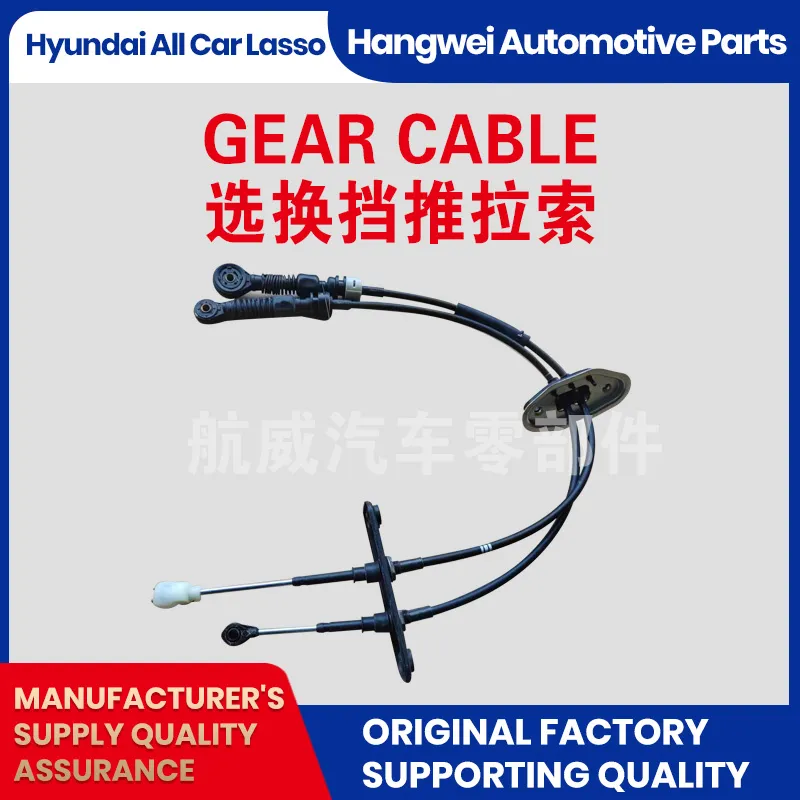master cylinder clutch line
Understanding the Master Cylinder Clutch Line Function, Importance, and Maintenance
The master cylinder clutch line is an integral component of a vehicle's manual transmission system. It plays a crucial role in engaging and disengaging the clutch, allowing for smooth gear shifts and effective power transfer from the engine to the wheels. Understanding how this system works, its importance, and the necessary maintenance can enhance vehicle performance and prolong its lifespan.
What is the Master Cylinder Clutch Line?
The master cylinder clutch line typically refers to the hydraulic system that connects the master cylinder to the clutch slave cylinder. The master cylinder is a pump driven by the clutch pedal, which creates hydraulic pressure. This hydraulic pressure is transmitted through a fluid-filled line to the slave cylinder, which then actuates the clutch mechanism. When the driver presses the clutch pedal, the master cylinder generates pressure that moves the slave cylinder, pushing the clutch fork or release bearing to disengage the clutch. This allows the driver to shift gears smoothly.
Importance of the Master Cylinder Clutch Line
1. Smooth Operation A functioning master cylinder clutch line ensures that the clutch engages and disengages smoothly. This is essential for seamless gear shifting, allowing drivers to transition between gears without slippage or grinding.
2. Safety A malfunction in the clutch hydraulic system can lead to a clutch that either fails to disengage or remains partially engaged, which can cause the vehicle to stall or lurch unexpectedly. This can create hazardous driving conditions, making it imperative for the clutch line to be in good working order.
3. Performance The efficiency of the master cylinder clutch line directly impacts overall vehicle performance. A well-maintained system ensures optimal power transfer from the engine, contributing to better acceleration and responsiveness.
4. Durability Regular checks and maintenance of the master cylinder clutch line can prevent premature wear and tear, ultimately extending the lifespan of the vehicle's clutch system and saving on costly repairs.
Common Issues with the Master Cylinder Clutch Line
Like any mechanical system, the master cylinder clutch line can encounter several issues
1. Fluid Leaks Over time, seals and hoses can wear down, leading to fluid leaks. A noticeable drop in hydraulic fluid levels can make the clutch feel spongy or unresponsive.
master cylinder clutch line

2. Air in the System If air enters the hydraulic line, it can create a spongy feel when pressing the clutch pedal, leading to poor clutch engagement. Bleeding the system may restore proper function.
3. Worn Components The master cylinder or slave cylinder may wear out due to age or constant use. Symptoms include difficulty in engaging or disengaging the clutch and unusual noises while shifting.
Maintenance Tips
To ensure the master cylinder clutch line operates effectively, regular maintenance is paramount
1. Inspect Fluid Levels Regularly check the hydraulic fluid levels in the master cylinder reservoir. If it is low, top it up with the manufacturer-recommended fluid.
2. Look for Leaks Routinely inspect the hydraulic lines and connections for signs of leaks or damage. If any are detected, repair or replace the affected parts immediately.
3. Bleed the System If you experience spongy clutch pedal feel, it may be time to bleed the hydraulic system to remove air bubbles. Follow the appropriate procedure for your vehicle make and model.
4. Replace Worn Parts If the clutch engages or disengages slowly, or if you hear grinding noises, consider having the master cylinder or slave cylinder examined and replaced if necessary.
5. Professional Servicing Periodically, have a qualified mechanic inspect the clutch system to catch any potential issues before they develop into more significant problems.
Conclusion
The master cylinder clutch line is a vital component of a vehicle's manual transmission system, influencing both performance and safety. Keeping this system well-maintained through regular checks, fluid inspections, and addressing issues promptly can enhance your driving experience and prolong the life of your vehicle. Understanding this component's function and importance empowers drivers to take proactive steps toward effective automobile maintenance.
-
Upgrade Your Control with Premium Throttle CablesNewsAug.08,2025
-
Stay in Control with Premium Hand Brake CablesNewsAug.08,2025
-
Experience Unmatched Performance with Our Clutch HosesNewsAug.08,2025
-
Ensure Safety and Reliability with Premium Handbrake CablesNewsAug.08,2025
-
Enhance Your Vehicle with High-Performance Clutch LinesNewsAug.08,2025
-
Elevate Your Ride with Premium Gear CablesNewsAug.08,2025
